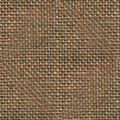Bunting (textile)


Bunting (or bunt) was originally a specific type of lightweight worsted wool fabric generically known as tammy,[1] manufactured from the turn of the 17th century,[2] and used for making ribbons[3] and flags,[4] including signal flags for the Royal Navy. Amongst other properties that made the fabric suitable for ribbons and flags was its high glaze, achieved by a process including hot-pressing.[5]
The origin of the word is uncertain.[6]
Today, bunting is a term for any festive decorations made of fabric, or of plastic, paper or even cardboard in imitation of fabric. Typical forms of bunting are strings of colorful triangular flags and lengths of fabric in the colors of national flags gathered and draped into swags or pleated into fan shapes.
The term bunting is also used to refer to a collection of flags, and particularly those of a ship.[7] The officer responsible for raising signals using flags is known as bunts, a term still used for a ship's communications officer.
Notes
- ↑ "The gradual change of spelling undergone by this name from 'estamet' to 'tammy' had by that date proceeded as far as 'tamett'. By 1633 it had become 'tammet'" (Kerridge 1988, p. 53).
- ↑ "Worsted tammies, white and coloured, broad and narrow, were made in Norwich and East Norfolk, seemingly from about 1594, certainly from 1605" (Kerridge 1988, p. 53).
- ↑ Scargill 1965, p. 101–110.
- ↑ "One special form of tammy, called bunt or bunting, was sold for making flags" (Kerridge 1988, p. 53).
- ↑ "They were also highly glazed by hot-pressing and other means." (Kerridge 1988, p. 53).
- ↑ Oxford English Dictionary on CD-ROM, Oxford University Press, 2002
- ↑ Chisholm 1911.
References
 Chisholm, Hugh, ed. (1911). "Bunting (flags)". Encyclopædia Britannica. 4 (11th ed.). Cambridge University Press.
Chisholm, Hugh, ed. (1911). "Bunting (flags)". Encyclopædia Britannica. 4 (11th ed.). Cambridge University Press.- Kerridge, Eric (1988). Textile manufactures in early modern England. Manchester University Press. ISBN 978-0-7190-1767-4.
- Scargill, D.I. (1965). Wakefield: A Study of Arrested Urban Development. 36. The Town Planning Review. pp. 101–110.
External links
-
 Media related to Bunting at Wikimedia Commons
Media related to Bunting at Wikimedia Commons


.svg.png)